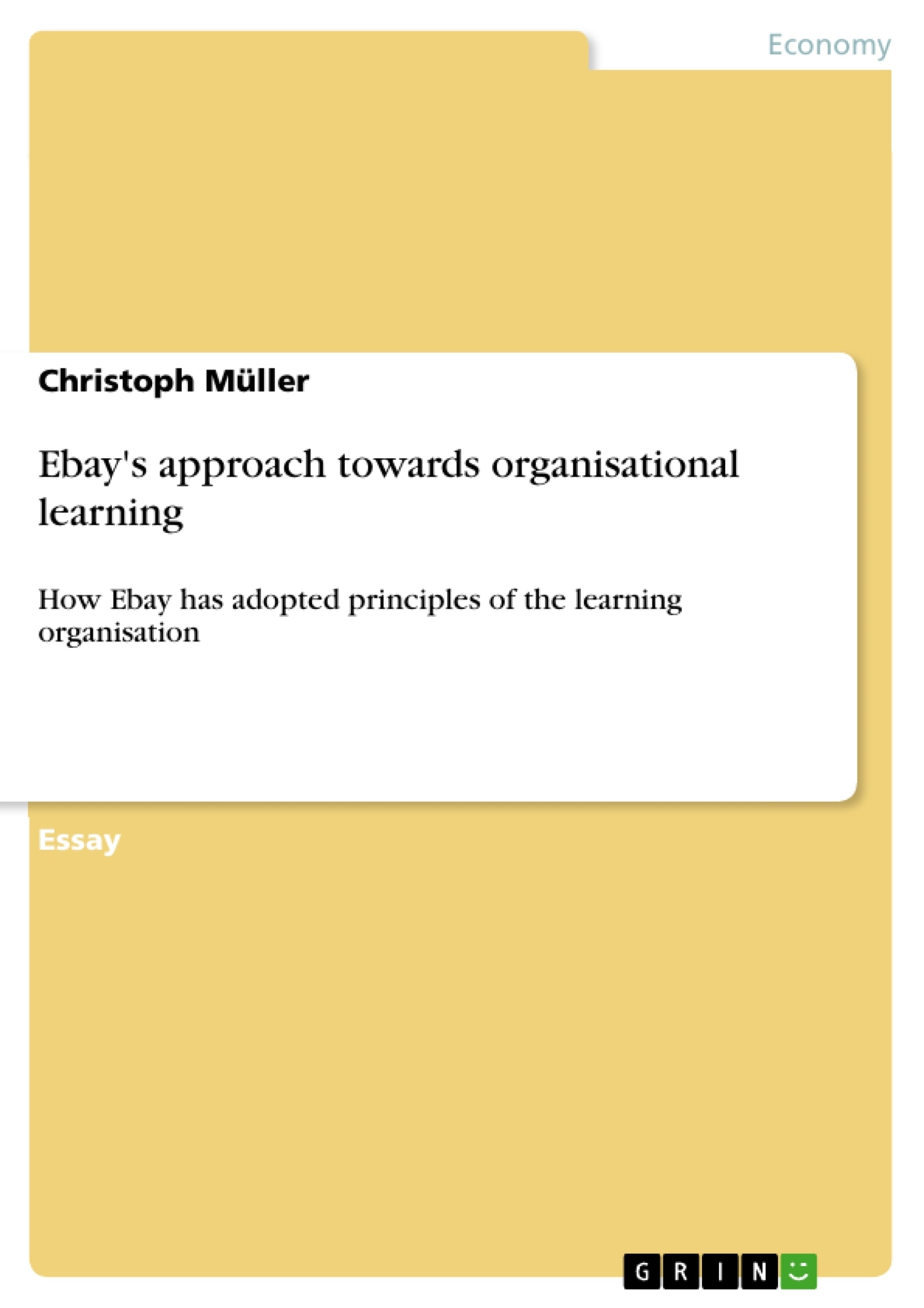This paper deals with organizational learning in the digital business world, where rapid changes are having a serious effect on organizations and where success primarily depends upon the people involved. The first part of the paper gives a brief overview of the prevailing management principles which were advocated by well-known theorists and have been adopted by many organizations to date. As the paper progresses, it broadly deals with the purpose of organizational learning and its principles. To provide an example of how a learning organization operates in practice, the approach of the e-commerce company eBay will be analysed in order to draw attention to the contribution of learning principles to organizational success. Finally, contemporary issues which seem to negatively affect eBay and its corporate culture will be discussed.
Inhaltsverzeichnis (Table of Contents)
- Organizational Learning in the Digital Business World
- Prevailing Management Principles
- Purpose of Organizational Learning
- The Learning Organization
- eBay as a Learning Organization
- Contemporary Issues Affecting eBay
Zielsetzung und Themenschwerpunkte (Objectives and Key Themes)
This paper examines organizational learning within the dynamic context of the digital business world, highlighting the crucial role of individuals in driving success amidst rapid change. The paper explores prevailing management principles, the purpose and principles of organizational learning, and the practical application of these principles within a learning organization using eBay as a case study. It further discusses contemporary challenges affecting eBay and its corporate culture.
- The impact of rapid change on organizations in the digital business world
- The importance of organizational learning for adapting to change and achieving success
- The characteristics and principles of a learning organization
- The role of employees in driving innovation and organizational development
- The challenges faced by learning organizations in a competitive environment
Zusammenfassung der Kapitel (Chapter Summaries)
The paper begins by providing an overview of classic management theories, including the classical management theory and scientific management theory, as advocated by theorists such as Henri Fayol, F.W. Mooney, Lyndall Urwick, and Frederick Taylor. The paper then discusses the emergence of the learning organization as a response to the rapid pace of change in the modern business environment, highlighting the work of Peter Senge and Gary Hamel in defining the characteristics of learning organizations.
To illustrate the practical application of organizational learning principles, the paper focuses on the case study of eBay, a leading e-commerce company. It traces the development of eBay from its early beginnings as "Auction Web" to its growth into a major player in the e-commerce industry, highlighting the key role played by its founders Pierre Omidyar and Meg Whitman.
The paper discusses how eBay's success can be attributed to its adoption of organizational learning principles, including its emphasis on employee development, its commitment to fostering innovation through internal initiatives like the "Demo Expo," and its focus on creating a collaborative and trustworthy work environment.
Schlüsselwörter (Keywords)
This paper focuses on organizational learning, digital business world, rapid change, management principles, learning organization, employee development, innovation, corporate culture, competitive advantage, eBay, e-commerce, case study.
Frequently Asked Questions
What is a "learning organization"?
A learning organization is an entity that facilitates the learning of its members and continuously transforms itself to adapt to rapid changes in the business environment.
How did eBay apply organizational learning principles?
eBay emphasized employee development, fostered innovation through internal initiatives like the "Demo Expo," and created a collaborative environment to drive its e-commerce success.
Who were the key figures in eBay's development?
Pierre Omidyar, the founder of "Auction Web," and Meg Whitman, who led the company through its massive growth phase, were instrumental in shaping eBay's culture.
What are prevailing management principles mentioned?
The paper discusses classical management theory and scientific management, advocated by theorists like Frederick Taylor and Henri Fayol, before contrasting them with modern learning organization theories.
What challenges does eBay face today?
Contemporary issues include maintaining a consistent corporate culture amidst intense competition and the need for continuous innovation to stay relevant in the digital business world.
- Citation du texte
- Christoph Müller (Auteur), 2010, Ebay's approach towards organisational learning, Munich, GRIN Verlag, https://www.grin.com/document/167842



